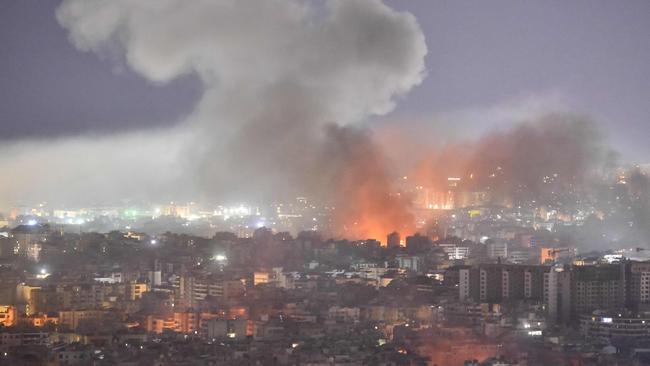Israel must be supported in using force against foes

After the bombing of Darwin our Foreign Ministry would no doubt issue a media release stating that “innocent Japanese civilians should not have to suffer because of Japan’s attack on Australia”.
Highly respected strategic analyst Walter Russell Mead recently pointed out that our foreign policy elites desperately want to believe successful foreign policy depends less on military strength and more on diplomacy, international law and attention to human rights.
But he argued that this is all just a pleasant illusion and that “nowhere is the game of Let’s Pretend more assiduously practised than in the world of Western Middle East policy”.
Mead’s observations are perfectly illustrated by Australia’s approach to Israel and the Middle East, where there’s little recognition of Iran’s ambitions to be the hegemonic power in the region, and that to get to a two-state solution we’d need a fundamental reform of the Palestinian Authority.
We saw this approach last week in Penny Wong’s United Nations speech. It’s a political mystery why she pursued a line that was simultaneously anti-Israel yet not pro-Hezbollah or pro-Hamas enough for the western Sydney electorates that hitherto have driven her government’s approach to our Middle East policy.
One possible explanation here is that Israel’s recovery of its military mojo and deterrence reputation has happened so swiftly in the past fortnight that it’s severely shaken all Wong’s guidelines, leaving her floundering.
In almost every speech, tweet or commentary on Israel and the Middle East our Prime Minister and Foreign Minister highlight how they fear greater violence, more casualties and an expanded war with more participants. These warnings and constant calls for restraint are understandable. But fundamentally they are asking Israel not to use force in its own defence.
Resorting to force is seen as completely uncivilised. But Israel is in a tough neighbourhood: refusing to use force simply sends a message of weakness. In the security situation confronting Israel (it faces strikes from Gaza, the West Bank, Lebanon, Syria, Iraq, Yemen and Iran), Israel must stop its enemies if it wants to end the violence.
Coming up to the anniversary of October 7, for example, many Israeli analysts point out that the containment policy conducted for years by Israel in Gaza failed: Israel didn’t do enough to deter Hamas, giving the terrorist group time to build up its forces and its confidence. Similarly, Israel’s containment approach failed to deter Hezbollah’s war of attrition against it, allowing the group to send rockets into northern Israel, resulting in an intolerable depopulation of the country’s northern areas.
Now Israel has decided to escalate the use of force to eliminate the threat from Hezbollah, the group that has been the jewel in the crown of Iran’s “axis of resistance” against Israel and the US.
Israel has been right to reject as illusionary the idea of a diplomatic solution to stop Hezbollah’s war of attrition against it. In this context, the UN role Penny Wong constantly looks to for peaceful solutions has been farcical. UNIFIL, the UN force in southern Lebanon, was established to separate the two sides by keeping Hezbollah away from the joint border. But UNIFIL has been utterly ineffective, and the UN troops have never done their job.
Israel has shown in recent days it is ready to escalate in Lebanon and willing to sustain pain and suffering to achieve victory.
The Albanese government has too often missed the point that it’s the Iranian cycle of continuous aggression that maintains the assault on Israel through its proxies daily. It’s only by demonstrating it is willing to retaliate that Israel judges there will be any prospect that its enemies will exercise restraint. Israel knows its willingness to use force, not diplomacy, is the only way to ensure its own security.
We say we have been steadfast in our commitment to Israel. But this government has effectively adopted an arms embargo against the Jewish state, and renewed UNRWA funding. The Israeli government is wise not to have listened to our advice to exercise restraint and to just seek goodwill.
It has been right to have ignored our regular warnings on escalation. Israel knows that if it did that it would just invite more aggression from its enemies. Compare Israel to Ukraine, which is struggling to fight effectively given the constraints placed upon it by the West. Wisely, Israel knows it must take the fight to its enemies.
Empty words won’t cut it when it comes to Israel’s self-defence. That’s no more than wishful thinking. When it comes to the war in Gaza and defeating Hezbollah, we should support Israel standing firm on the battlefield.
Anthony Bergin is a senior fellow at Strategic Analysis Australia and an expert associate at the National Security College.






If it were 1942 the Albanese government would be condemning Germany and Japan for their dangerous escalation and calling for urgent diplomatic solutions. There’d be frantic calls by Penny Wong for ceasefires in Europe and the Pacific.